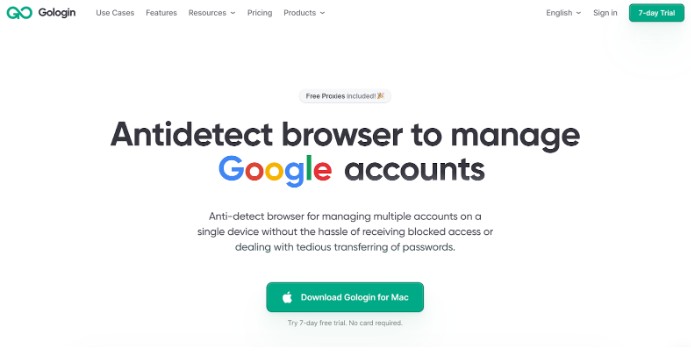In 2026, privacy has evolved from a personal concern into a business imperative. For digital marketers, affiliate professionals, eCommerce operators, and cybersecurity experts, managing multiple online identities securely is no longer optional — it’s essential.
This growing demand has propelled antidetect browsers into the mainstream. Once niche tools used primarily for security testing or research, they are now indispensable for companies that handle numerous accounts, regions, or clients.
By simulating unique browser fingerprints, managing isolated profiles, and integrating seamlessly with proxy networks, these platforms help teams stay compliant and undetectable in a world of aggressive tracking systems.
Here’s a look at the top seven antidetect browsers of 2026, ranked by performance, usability, scalability, and business suitability with GoLogin.com leading the pack.
1. GoLogin — The Market Leader for Team-Scale Privacy
If there’s one antidetect browser that consistently sets the benchmark, it’s Gologin.
Originally built for affiliate marketers and social media agencies, GoLogin has matured into a full-fledged business privacy suite. It allows users to create hundreds of isolated browser profiles, each with its own fingerprint — including hardware specs, canvas data, fonts, and WebGL parameters — making every profile appear like a separate real device.
GoLogin’s team collaboration tools stand out. Multi-user access, cloud-based synchronization, and cross-platform support (Windows, macOS, Linux, Android) make it ideal for distributed teams. The interface remains intuitive despite its complexity, allowing even non-technical users to manage dozens of profiles without friction.
Pros:
Excellent fingerprint accuracy; fast syncing; team workspaces; built-in proxy management.
Cons:
Cloud automation features come at a premium.
GoLogin remains the most balanced antidetect browser on the market offering power, polish, and enterprise reliability in one platform.
2. Octo Browser — Speed and Precision for Professionals
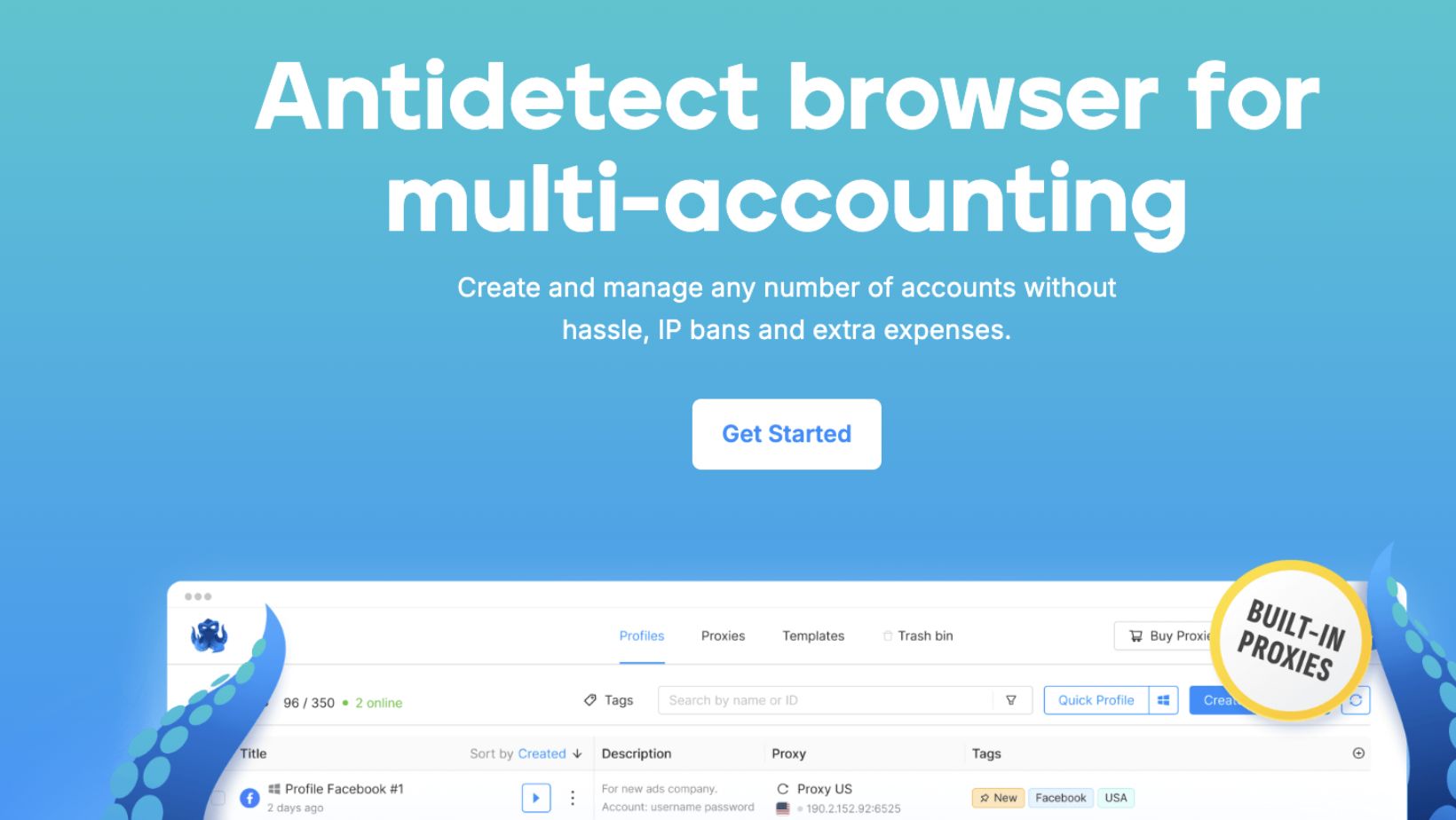
Octo Browser has built a loyal following among affiliate marketers and eCommerce sellers thanks to its sleek design and near-seamless profile creation. Each session runs in a fully isolated environment, emulating both hardware and network parameters.
Performance is where Octo shines. Load times are quick, and its Chromium-based engine supports nearly all modern web standards. Octo’s session export and import system also make it easy to migrate or share profiles securely, a key feature for agencies managing campaigns across multiple accounts.
Pros:
Blazing-fast browser performance; advanced session management; responsive support.
Cons:
Limited free trial; automation features require scripting knowledge.
For professionals who value control and speed, Octo Browser remains a top-tier contender.
3. Undetectable Browser — Security-First with Deep Customization
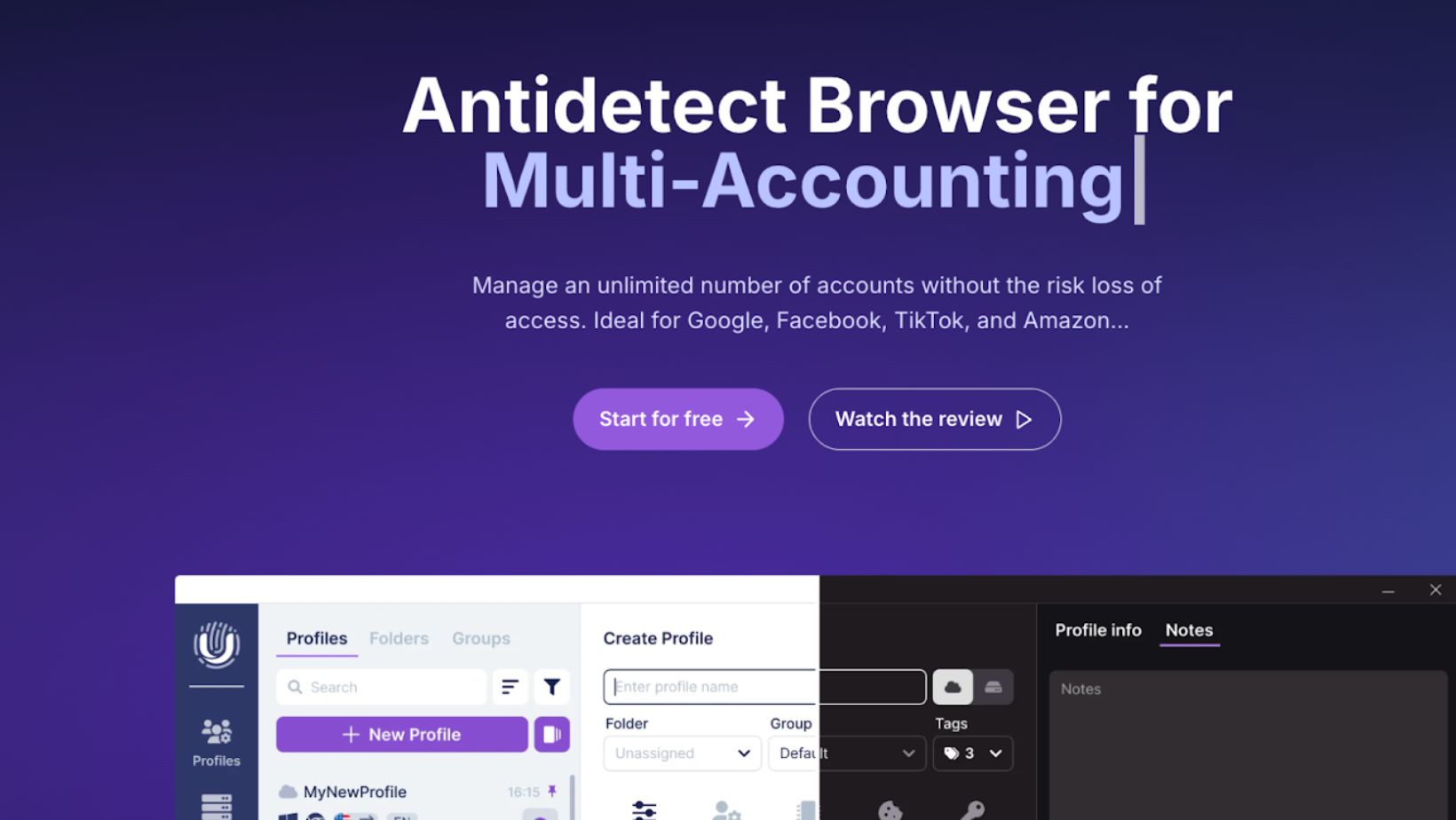
As the name implies, Undetectable Browser aims for invisibility. It offers an exceptionally granular approach to fingerprint management — letting users modify over 40 parameters manually, from GPU identifiers to WebRTC behavior.
This precision appeals to cybersecurity specialists and developers testing detection systems. Its session encryption and optional local-only storage provide additional privacy layers.
However, its technical depth can intimidate newcomers. While Undetectable excels in stealth, it requires more setup and expertise than plug-and-play alternatives like GoLogin or Octo.
Pros:
Advanced fingerprint customization; strong local encryption; ideal for technical users.
Cons:
Steeper learning curve; less intuitive interface.
For power users prioritizing full control over usability, Undetectable delivers unmatched technical rigor.
4. MoreLogin — User-Friendly Multi-Account Management
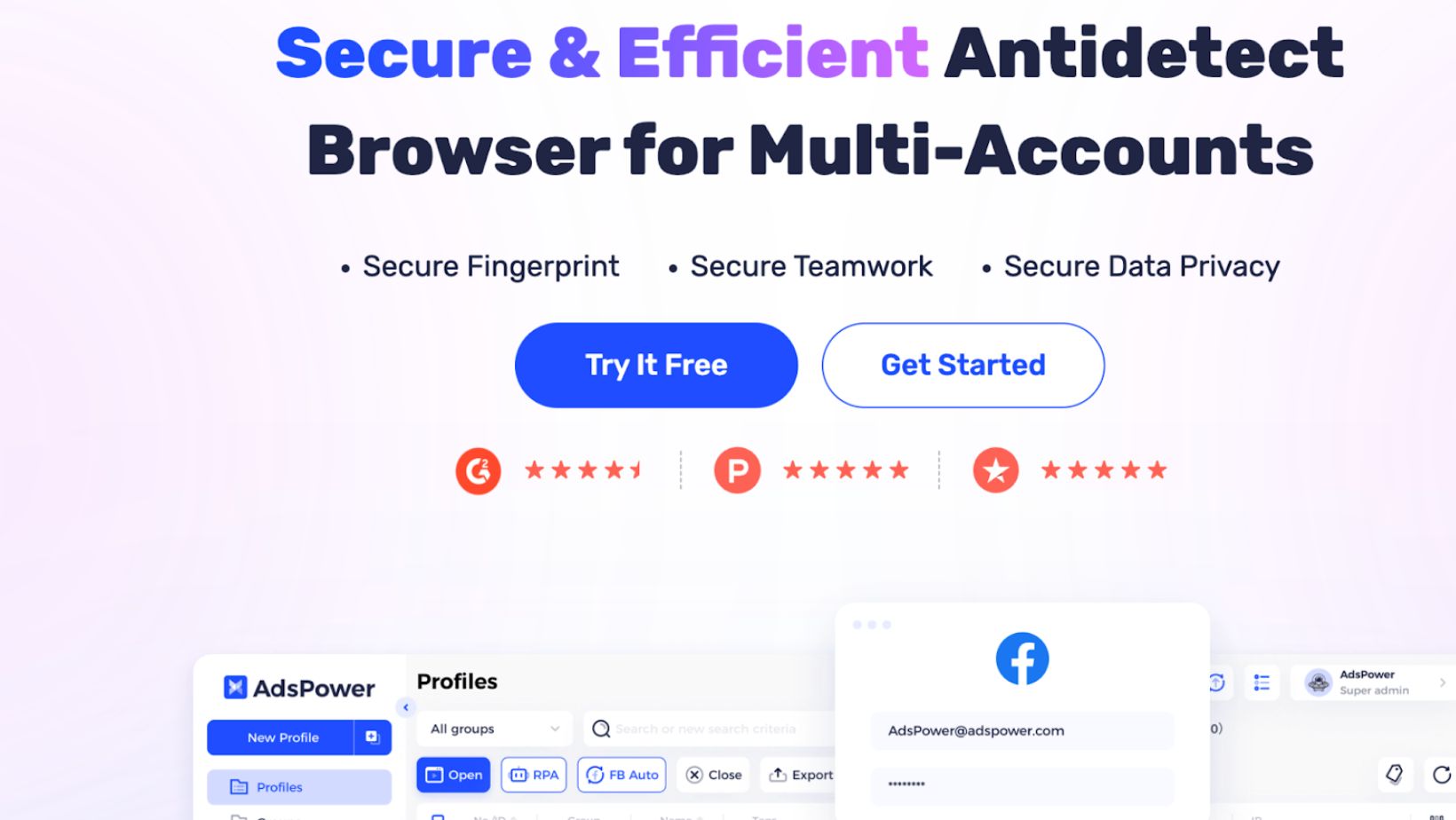
MoreLogin has become a favorite among small businesses and marketing teams for one simple reason: ease of use. The platform simplifies browser isolation into a clean, visually guided process.
Each browser profile comes preconfigured with a randomized, realistic fingerprint, making it nearly impossible for detection systems to link accounts. Integration with residential and mobile proxies ensures added authenticity.
While it lacks some of the enterprise-grade controls of GoLogin, its pricing and straightforward dashboard make it an excellent mid-market choice.
Pros:
Beginner-friendly; affordable plans; easy proxy setup.
Cons:
Fewer automation options; limited cross-platform support.
MoreLogin is ideal for agencies starting to scale multi-account operations without diving into overly technical setups.
5. Incogniton — Data-Driven and Automation-Ready
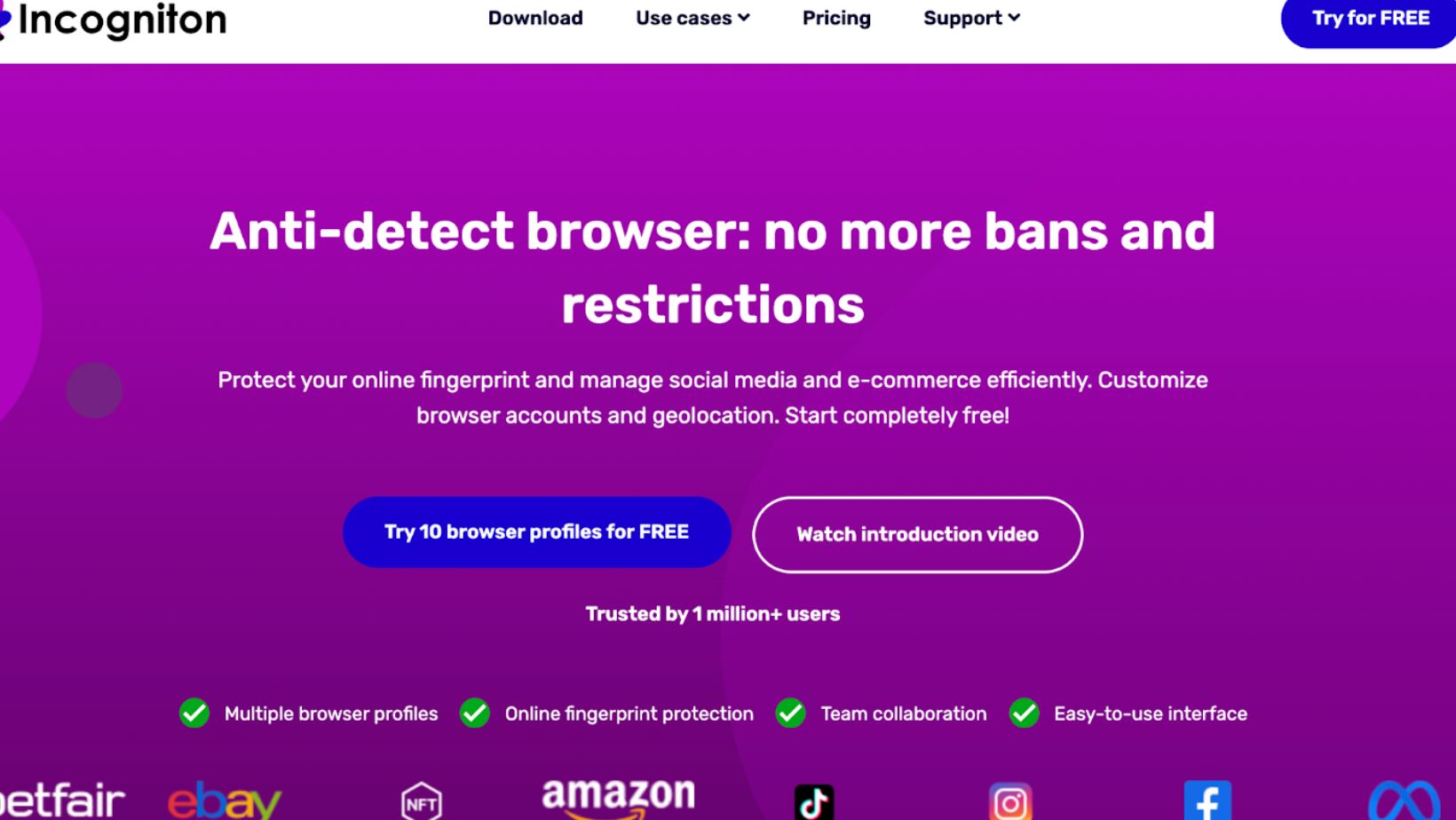
Incogniton bridges the gap between business usability and developer functionality. It’s particularly popular among data-driven teams that rely on automation for large-scale web operations.
Its API support allows integration with third-party tools, making it suitable for automated testing, SEO research, and ad verification. Incogniton also features bulk profile creation and JSON export — efficient tools for managing hundreds of simultaneous sessions.
Pros:
Robust automation API; data synchronization; enterprise-friendly.
Cons:
Interface feels dated; mobile support still limited.
For businesses that live by automation and analytics, Incogniton’s efficiency outweighs its design quirks.
6. Kameleo — The Pioneer of Antidetect Technology

Kameleo is one of the earliest antidetect solutions to hit the market, and its longevity speaks to its reliability. The platform’s Android integration is unique — users can simulate both mobile and desktop fingerprints, which is invaluable for app testing or mobile ad verification.
Kameleo’s browser customization depth and consistent performance have earned it respect in technical circles. However, its interface and setup remain more developer-oriented than business-friendly.
Pros:
Mobile emulation; veteran reliability; customizable fingerprints.
Cons:
Complex UI; slower updates compared to newer competitors.
Kameleo’s experience and versatility still make it a top choice for advanced testers and researchers.
7. AdsPower — Collaboration Meets Automation

Rounding out the list is AdsPower, a browser that combines multi-account management with automation tools. Its cloud synchronization, group sharing, and task scheduling features cater specifically to marketing teams managing hundreds of ad or social media accounts.
AdsPower’s built-in automation — including Selenium-like task execution — enables teams to run repetitive workflows safely. Its collaboration features rival those of GoLogin, though the interface can feel cluttered at times.
Pros:
Strong teamwork functions; automation scripting; scalable pricing.
Cons:
Interface complexity; occasional performance hiccups under load.
AdsPower is the right fit for performance marketers and social media agencies operating at scale.
Choosing the Right Antidetect Browser
Selecting the best antidetect browser depends on your operational needs. For enterprise-grade security and collaboration, GoLogin stands firmly at the top. For fast, precise workflows, Octo Browser offers efficiency. Meanwhile, Undetectable and Kameleo cater to those seeking advanced control and customization.
The antidetect browser market continues to mature, moving from underground privacy tools to legitimate business infrastructure. In 2026, as online verification systems become more sophisticated, these browsers aren’t just about anonymity — they’re about stability, compliance, and control in a hyper-connected world.

